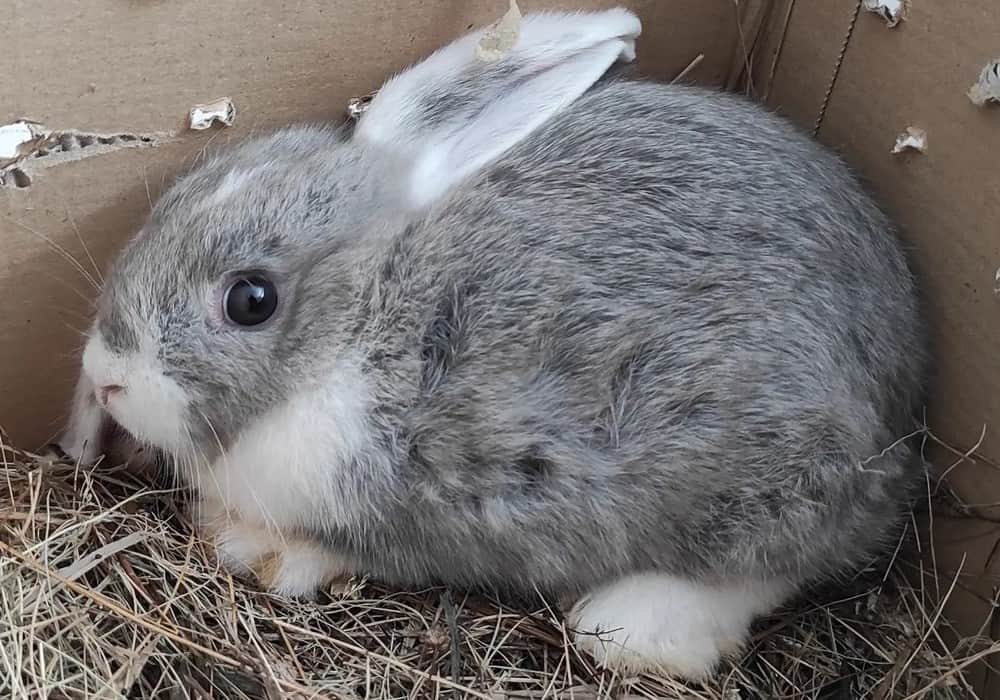In this article, you will learn how to calm down a scared bunny and how to behave properly with him. Rabbits are timid creatures and easily frightened. A loud noise, an unfamiliar person or animal, or even a sudden movement can startle a rabbit and send it running for cover.
This natural wariness helps rabbits avoid predators, but it can also make them difficult to approach and handle. When rabbits are frightened, they may try to flee or hide, and if cornered, they may lash out with their powerful hind legs in an attempt to defend themselves.
If you have a pet rabbit, it’s important to understand how to handle them properly to avoid frightening them. Always move slowly and speak quietly around rabbits, and be careful not to make any sudden movements.
Can Rabbits Be Afraid?
It’s natural for rabbits to be afraid of some things. Their wild ancestors lived in constant fear of becoming prey, and rabbits today still have many of the same survival instincts. However, that doesn’t mean rabbits are always afraid or that they can’t enjoy life.
Rabbits are afraid of loud noises, sudden movements, and unfamiliar people or animals. These things can all be scary for rabbits, and they may try to hide or run away when they encounter them. However, the nervous bunny can also learn to trust and even enjoy the company of some people and other animals.
If you have a rabbit, it’s important to understand their natural fears and how to help them feel comfortable and safe.
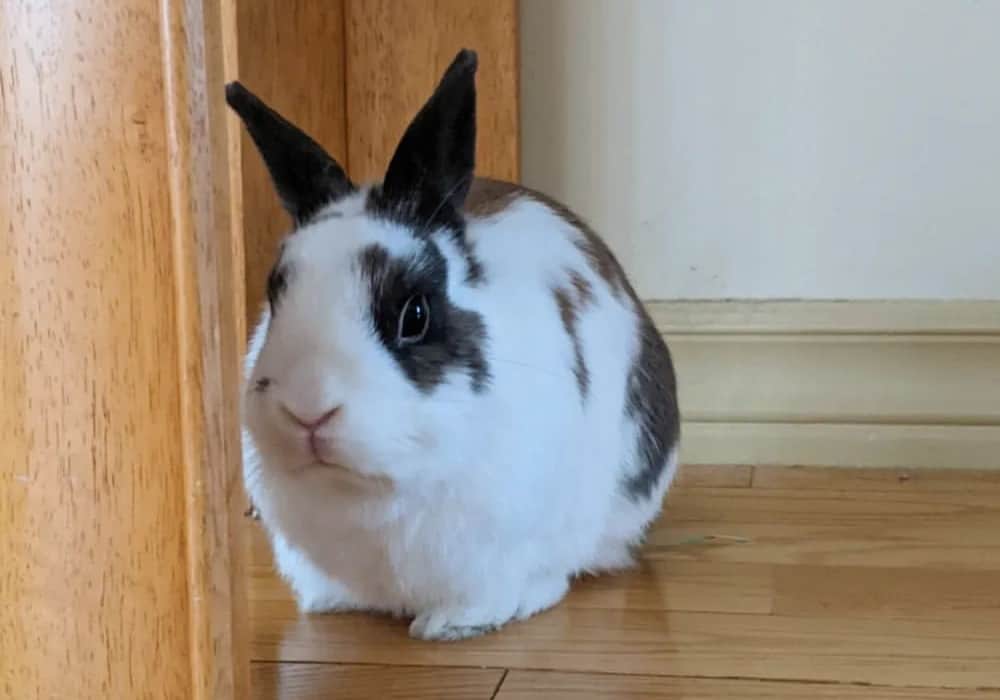
What Can Cause Stress in Rabbits?
Rabbits are prey animals and as such their natural instinct is to be constantly alert for predators. This means that are easily stressed bunny by anything that seems out of the ordinary or threatening in their environment. Some of the things that can cause stress in rabbits include:
- unfamiliar people or animals;
- loud noises;
- sudden movements;
- changes in their routine;
- being handled roughly;
- being confined in a small space;
- being in a place with a lot of activity going on around them.
Signs of Stress in a Rabbit
Signs that a stressed rabbit includes:
- Panting;
- Loss of appetite;
- Drooling;
- Shivering;
- Thumping feet;
- Screaming.
If you notice any of these signs in your rabbit, it is important to take action to help them feel more comfortable and safe.
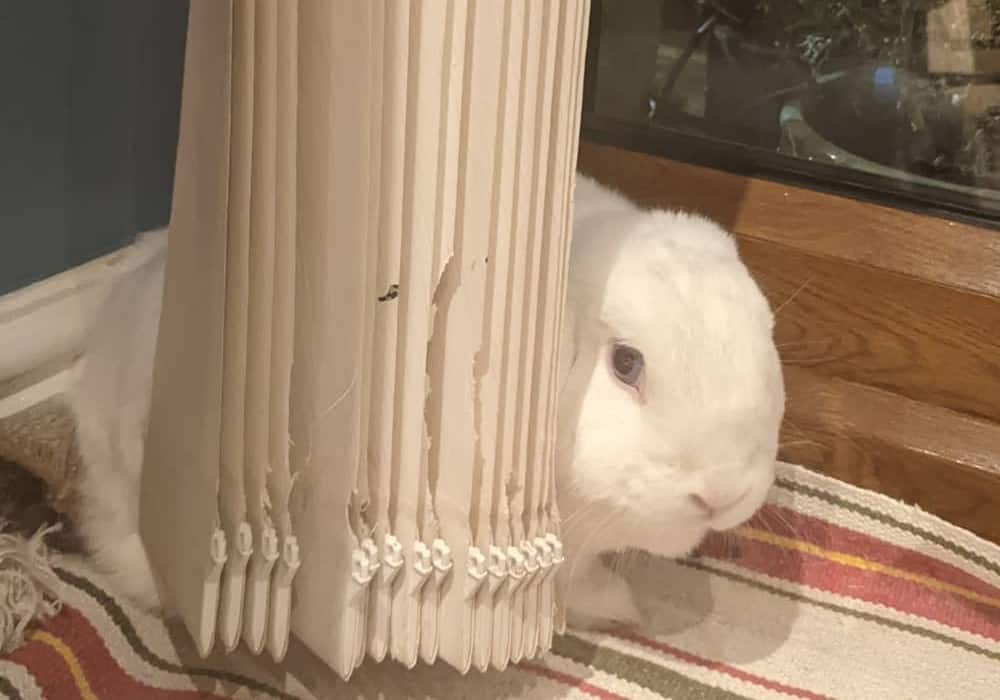
How to Determine That Your Rabbit Is Scared
If your rabbit is scared, it may exhibit a number of different behaviors. For example, they may freeze in place, run away, hide, or even try to attack. Rabbits may also make loud noises, such as grunting, squealing, or thumping their feet on the ground. If your rabbit is exhibiting any of these behaviors, it is likely that they are scared.
How to Calm a Frightened Rabbit
So, how to calm a rabbit? If your rabbit is showing signs of fear or anxiety, there are a few things you can do to help ease their stress. First, try to identify what is causing the fear. If there is a specific trigger, such as loud noises or being handled, try to avoid or minimize exposure to that stimulus. You can also provide your rabbit with a safe, secure hiding place where they can go to feel safe.
If your rabbit is still showing signs of fear, you can try some calming techniques. Gentle stroking can help to calm a frightened rabbit. You can also try offering them a favorite treat or food to help distract them from their fear. If your rabbit is still struggling to cope, you may want to talk to your veterinarian about other options, such as medication.
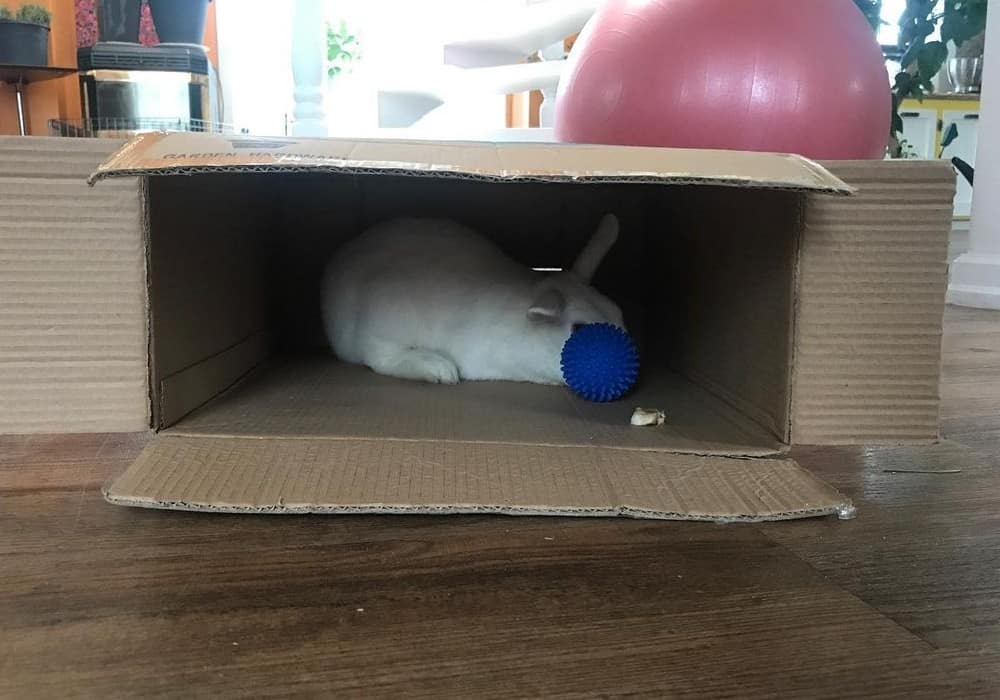
How to Reduce Stress in the Life of a Rabbit?
Rabbits are social animals and enjoy being around people and other rabbits. They are also very active and playful. However, like all animals, they can get stressed. Here are some ways to help reduce stress in your rabbit’s life:
- Give your rabbit plenty of space to run and play. A large enclosure with plenty of toys and hiding places is ideal.
- Make sure your rabbit has plenty of fresh hay and vegetables to eat. A healthy diet is important for reducing stress.
- Spend time each day playing with your rabbit. Rabbits love to play and it will help them stay calm and relaxed.
- Avoid handling your rabbit too much. Handling can be stressful for nervous rabbits, so only do it when necessary.
- Keep your rabbit’s environment clean and tidy. A clean cage will help reduce stress levels.
When Should I See a Veterinarian?
If you think your rabbit may be stressed, there are a few things you can do at home to help ease anxiety rabbit. Try placing their food in different locations around their cage, so they have to search for it. This will help keep their mind active and engaged. You can also try giving them a new toy to play with, or adding some new furniture to their cage.
If your rabbit continues to show signs of stress, it may be time to take them to the vet. The vet can help determine if there is a medical reason for their stress, and can provide you with tips on how to help ease their anxiety.
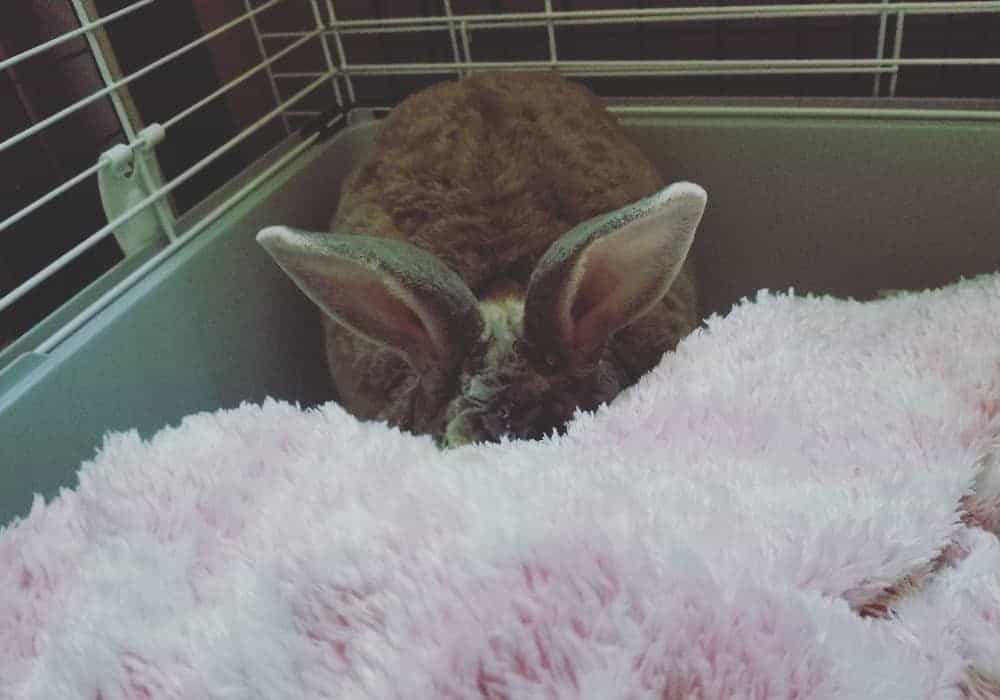
Why Is Fear Dangerous for Rabbits?
Fear is an emotion that is experienced by all animals, including rabbits. When a rabbit is afraid, its heart rate increases, its breathing quickens, and its body releases stress hormones. Fear is a survival mechanism that helps animals to avoid danger. However, fear can also be dangerous for rabbits.
When a rabbit is constantly in a state of fear, its body is in a constant state of stress. This can lead to health problems such as gastrointestinal issues, heart disease, and even shortened lifespan. In addition, fear can cause rabbits to become aggressive or bite.
Fear is a natural emotion, but it is important to make sure that your rabbit is not living in a constant state of fear.
Can a Rabbit’s Fear Turn Into Depression?
It is not uncommon for rabbits to feel fear. Fear is a natural emotion that helps keep rabbits safe from predators and other dangers. However, when rabbits are constantly exposed to fear, it can lead to depression.
Depression is a serious condition that can have a negative impact on a rabbit’s quality of life. Symptoms of depression in rabbits include a loss of appetite, lethargy, and social withdrawal. If your rabbit is exhibiting any of these symptoms, it is important to seek professional help.
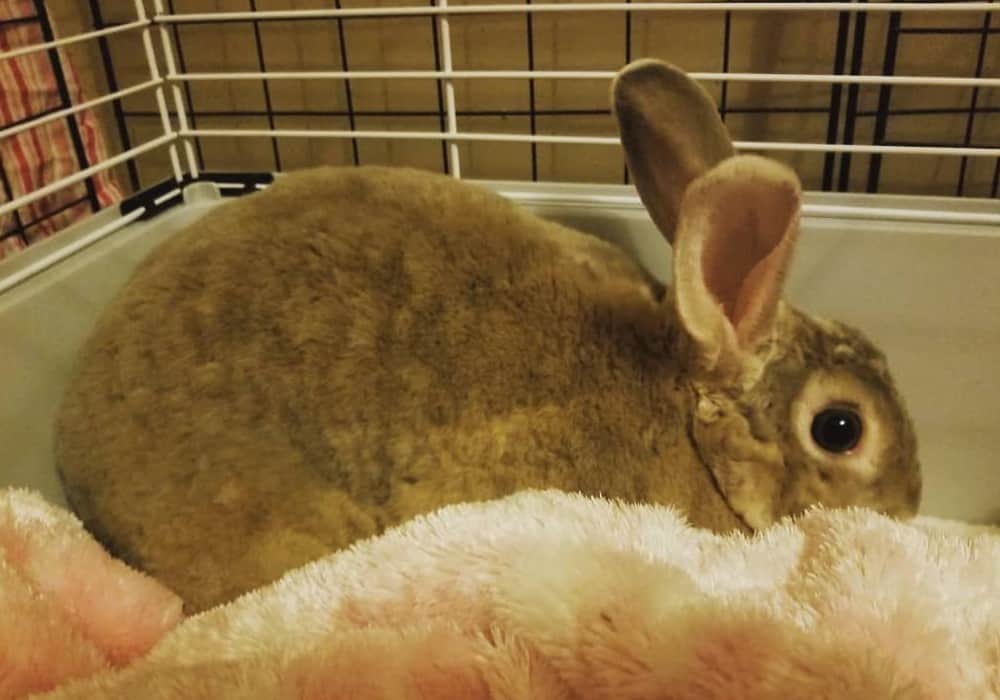
How to Calm a Rabbit in Shock
If your rabbit is in shock, it is important to take quick and calm action to help them. Here are some tips on how to calm a rabbit in shock:
- Remove any sources of stress or stimulation from the environment. This may include turning off lights, music, or television.
- Provide a quiet, comfortable place for your rabbit to rest. This could be a small room or area with soft bedding.
- Talk to your rabbit in a soft, calming voice.
- Offer them small water or a small amount of food if they are able to eat.
- If your rabbit is not responding to these measures, or if they are having difficulty breathing, it is important to seek emergency veterinary care.
How to Tell if My Rabbit Is Scared of Me
There are often questions about “how to tell if my rabbit is scared of me”. If your rabbit is afraid of you, there are a few things you can look for. First, see if your rabbit is avoiding you. If your rabbit is normally friendly and suddenly seems to be avoiding you, it may be because it’s afraid of you.
Another way to tell if your rabbit is afraid of you is by its body language. If your rabbit is hunched over, has its ears back, or is otherwise tense, it may be because it’s afraid of you.
If you think your rabbit is afraid of you, try to approach it slowly and calmly, and see if it relaxes. If it does, that’s a good sign that it’s not actually afraid of you. If your rabbit is still afraid of you, try offering it a treat, and see if it takes it from you. If it does, that’s a good sign that it’s starting to trust you.
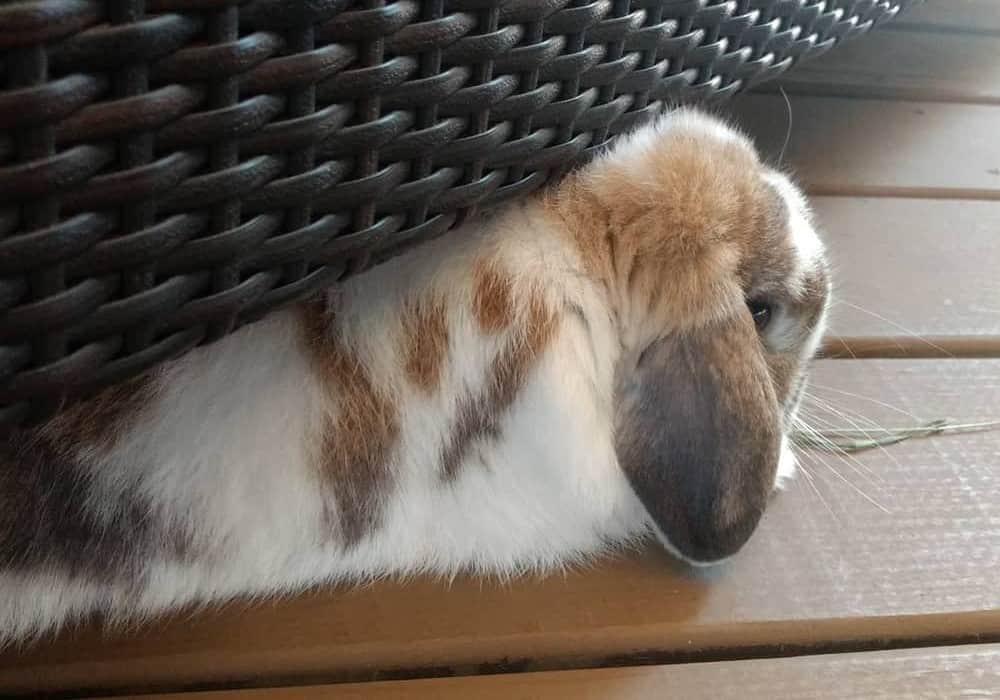
FAQ
How to Calm a Baby Bunny Down?
So, how to calm down a baby bunny? If your baby bunny is feeling scared or anxious, there are a few things you can do to help calm them down. Try offering them a favorite treat, petting them gently, or placing them in a quiet, safe space. You can also try speaking to them in a soft, soothing voice. If your bunny is still feeling stressed, you may need to consult with a veterinarian.
How Do You Bond With a Scared Bunny?
If you have a scared bunny, there are a few things you can do to help bond with them. Try offering them treats, petting them gently, and speaking to them in a soft, calm voice. You may also want to put a towel over their cage to help them feel more secure.
How Do You Cheer up a Bunny?
There is no one guaranteed way to cheer up a bunny, as every bunny is different and has different needs. However, some general tips on how to cheer up a bunny may include offering them favorite foods, providing them with toys or objects to play with, or simply spending time with them and providing them with love and attention.
Conclusion
In this article, you learned how to calm down a bunny. Rabbits are easily frightened by loud noises and sudden movements. When frightened, rabbits may run away or hide. If a rabbit is picked up or held, it may struggle to get away.
Rabbits are usually gentle and timid animals, but they can be aggressive if they feel threatened. When rabbits are scared, they may try to bite or scratch.
If you have a pet rabbit, it’s important to be aware of how easily they can be frightened.
References:
- How to Pet a Rabbit (wiki How): https://www.wikihow.com/Pet-a-Rabbit
- The effect of emotional and physical stress on thyroid activity in the rabbit (National Library of Medicine): https://www.ncbi.nlm.nih.gov/pmc/articles/PMC1365638/
- Do Animals Get Depressed? (National Geographic): https://www.nationalgeographic.com/animals/article/121004-animals-depression-health-science
Also read:
- Discover the Amazing World of 10 Day Old Bunnies: All About Rabbits!
- Discover All About the Characteristics of a 1 Year Old Rabbit
- Why Doesn’t My Rabbit Like Me? – Understanding Rabbit Behavior for All About Rabbits
- Everything You Need to Know About Bunny Grinding Teeth in Rabbits
- How Eating Poop is Part of a Normal Rabbit Diet – All About Rabbits
